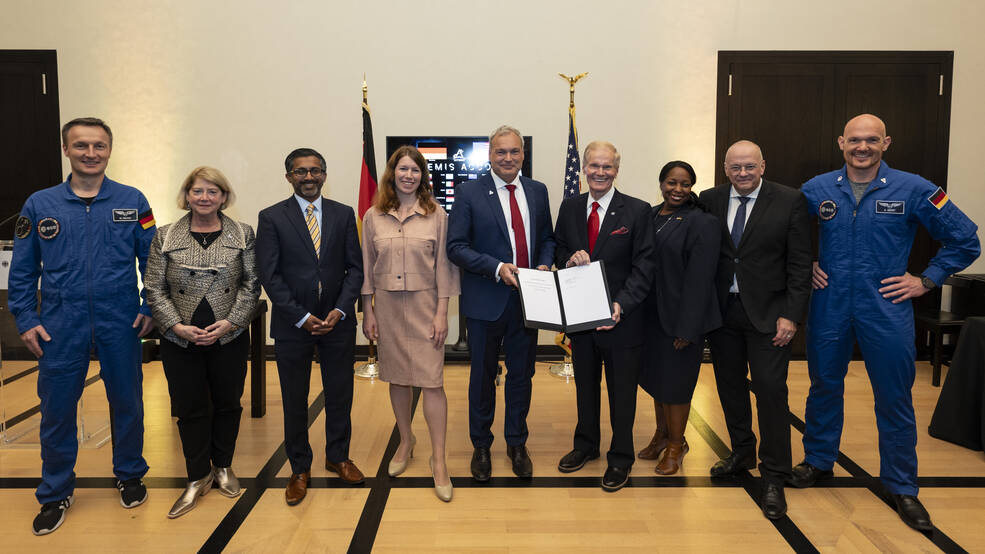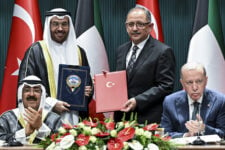
German and American space officials at Germany’s Artemis Accords signing ceremony Sept. 14, 2023. (Photo: NASA/Keegan Barber)
WASHINGTON — Germany on Thursday became the 29th nation to sign the Artemis Accords, designed to set norms for exploration and exploitation of the Moon, Mars and potentially mineral-rich asteroids — joining the two other big European space players, France and Italy, and putting another win in the Biden administration’s space diplomacy column as it attempts to compete with Chinese soft power on the geopolitical stage.
The move comes after more than a year of negotiations between Berlin and Washington, spearheaded behind the scenes by NASA Deputy Administrator Pam Melroy, with diplomats and space agency officials from Paris, Rome and London also lobbying their counterparts in Berlin. Germany is Europe’s political and economic powerhouse, and officials from several governments told Breaking Defense that they expect other European nations, particularly members of the European Space Agency, that have been dithering about signing to now follow suit.
“As a political commitment, the power of the Accords comes from the diversity and unity of its signatories. Germany signing unifies the largest contributors to ESA [European Space Agency] and sends an unqualified message to all nations that this unprecedented coalition of countries stand united in support of a peaceful and prosperous future in space for all of humanity to enjoy,” Mike Gold, a former NASA official who played a key role in penning the Artemis Accords in 2020, told Breaking Defense.
In a signing ceremony at his residence here, German Ambassador Andreas Michaelis stressed that Berlin is a strong believer in international norms and the rule of law, including in outer space.
“In Germany, we believe in multilateral approaches, and that also extends beyond this world and into space,” he said. “We are convinced that space exploration and the use of space resources should be based on common rules.”
Further, Michaelis said that the Artemis Accords are a key tool for shaping the geopolitical environment in space and thus important for German national security — echoing the sentiments of US national security leaders who are concerned about what they see as disruptive activity by Moscow and Beijing.
“Russia and China are aiming for the Moon and beyond are challenging the rules-based international order and the rules-based order in space. it is clear space is very political, it is an economic factor, but it has also a security impact. Germany’s first national security strategy … therefore recognizes that space has a strategic dimension of German security,” he said.
Laser weapons and future tanks: European Defense Fund to spend $1.3B on 54 projects
Development of more novel weapon systems includes the second phase launch of the Tactical Advanced Laser Optical Systems (TALOS) project (TALOS-TWO), designed to support a long term target of developing 100 kilowatt-class laser weapons by 2030.



























